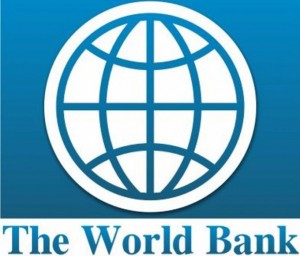Climate change could put 100 million more people in poverty by 2030 – World Bank
 According to a recent World Bank report, there could be at least 100 million more people in poverty by 2030 due to climate change and its impact on agriculture, especially in South Asia and sub-Saharan Africa, the most vulnerable region.
According to a recent World Bank report, there could be at least 100 million more people in poverty by 2030 due to climate change and its impact on agriculture, especially in South Asia and sub-Saharan Africa, the most vulnerable region.
The report “Shock Waves: Managing the Impacts of Climate Change on Poverty” says: “Without climate-informed development, 43 million more people – most of them in Ethiopia, Nigeria, Tanzania, Angola and Uganda – could fall into extreme poverty by 2030, largely as a result of lower crop yields and higher food prices, and the health impacts of climate change”
It says that poor people are already at high risk than the average population, from climate-related shocks which could wipe out hard-won gains and drive people back into poverty, including crop failure from reduced rainfall, food price hikes after extreme weather events, and increased incidence of diseases after heat waves and floods.
The World Bank estimates that the impact of climate change on food prices in Africa could be as high as 12 percent in 2030 and 70 percent by 2080, from possible global crop yield losses, estimated at 5 per cent by 2030 and 30 per cent by 2080.
A statement issued by the Bank said that for the 52 countries where data was available, 85 percent of the population live in countries where poor people are more exposed to drought than the average population, and live where food production is expected to decrease because of climate change.
The Bank also believes higher incidence of malaria, diarrhea and stunting could be possible accompanying health effects.
The report calls for development efforts that improve the resilience of poor people, such as strengthening social safety nets and universal health coverage, along with climate-specific measures to help cope with a changing climate, such as upgraded flood defenses, early warning systems and climate-resistant crops.
It also says a reduction in greenhouse gas emissions is needed to remove the long-term threat that climate change poses for poverty reduction but such mitigation efforts should be designed to ensure that they do not burden the poor.
“For example, the savings from eliminating fossil fuel subsidies could be reinvested in assistance schemes to help poor families cope with higher fuel costs.”
It notes that international support will be necessary to accomplish many of these measures, especially for investments with high upfront costs.
The report also reviews successful policy solutions to suggest that good development can protect the poor from shocks.
“For example, when droughts in Ethiopia caused food shortages in 2011, the government-run Productive Safety Net Program reduced the impact on poor people and poverty by quickly expanding coverage from 6.5 million people to 9.6 million and by increasing the duration of benefits from six to nine months per year. In Uganda, the combination of new crop varieties and extension visits has boosted household agricultural income by 16 per cent”, the Bank said.
By Emmanuel Odonkor
